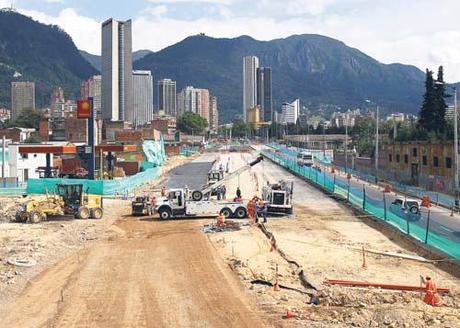Corruption in
Colombia – The Nule’s Case
In 2011, the Nule’s scandal struck the Colombian media
and caused a widespread indignation in citizens, for a good reason. The Nule’s
Group “[…] appropriated of public money given by the IDU for 3 public city constructions”[1]
and granted commissions to several officers of public bodies, including the ex
mayor of Bogota, Samuel Moreno. This scandal is just one of the many corruption
cases that citizens have to face daily in this country. This blog post will analyse
the corruption in Colombia from three main points; first, by examining the poverty
as a cause of corrupt behaviour; second, evaluating the weak Colombian social
structures and its repercussion in such problem as public patrimony detriment;
and finally, analysing the public contracting as a source of corruption.
Colombia is a third world country, with one of the
highest Gini coefficient[2]
in Latin America, which represents the serious problem of poverty in our
society, or in other words, the inequality in the level of income of the
citizens; this means, that while a portion of the population “[…] has all the
income or consumption of the country,
all others have none”[3]
(italic text added). This is a cause of corruption behaviour, “[…] because a
poor person might not have money to pay for certain public utilities and is consequently forced to opt for the corrupt
alternative to achieve his goal”[4]
(italic text added).
Likewise, one of the weakest social structures of
Colombian society is that the private interests are most of the time, above the
common interests. One example can be lobbying, “[…] where private interests
interact with public decision making”[5].
This doesn’t means that every kind of lobbying is a cause of corruption, but in
the most cases, “[…] there is compelling evidence that private interests
heavily interfere with public decision making in illegitimate and illegal ways”[6],
such as happened with the Nule’s case.
Finally, with respect to
the corruption in public contracts, “[…] several recent reports have
identified major scandals in road contracting in the country at large and in
Bogota”[7].
The Nule’s case study shows that there were a carrousel of contractors and
public bodies officers that were bribing its way to obtaining contracts. The
magnitude of the public detriment caused by the contracts carrousel not only in
Bogota, but throughout the country is scandalous. This problem is caused by the
weak Colombian legal system, that don’t penalize the way it should this
violation to the society ethics and morality; and to the lack of governmental
and citizen control that is exercised for this kind of contracts.
“Corruption has always
existed. But never before has the country been so terrified by the nature of
the scandals and the size of the bribes associated with the distribution of public
resources”[8].
The case study is a prime example of this problem, and it can be a result of
such deep problems as the society poverty and its weak social and legal
structures that doesn’t punish and control this kind of activities. A lot of
effort has been made to have a public contracting system more transparent, but
that’s just the first step. The only way to solve this problem is that citizens
are aware of the importance of building society values, rules and institutions
all together. It can be as easy as pursuing common interests instead of pursuing
personal ones.
Bibliography
Gilbert, A. Transparency and
corruption in public contracting in Colombia. CoST International
Secretariat.
Graf Lambsdorff, J., & Fink, H. Combating Corruption in Colombia:
Perceptions and Achievements. Passau: Universität Passau.
[1] Recovered from the web page http://www.elespectador.com/opinion/editorial/articulo-317219-los-nule-y-el-sistema-legal-colombiano
on February 15 of 2012.
[2] This is the most
commonly used measure of inequality. The coefficient varies between 0, which
reflects complete equality and 1, which indicates complete inequality (one
person has all the income or consumption, all others have none). (World Bank,
2012)
[3] Recovered from the web page http://web.worldbank.org/WBSITE/EXTERNAL/TOPICS/EXTPOVERTY/EXTPA/0,,contentMDK:20238991~menuPK:492138~pagePK:148956~piPK:216618~theSitePK:430367,00.html
on February 17 of 2012.
[4] Graf Lambsdorff, J., & Fink, H. Combating
Corruption in Colombia: Perceptions and Achievements. Passau: Universität
Passau, pp. 25
[7] Gilbert, A. Transparency and
corruption in public contracting in Colombia. CoST International
Secretariat, pp. 2.

